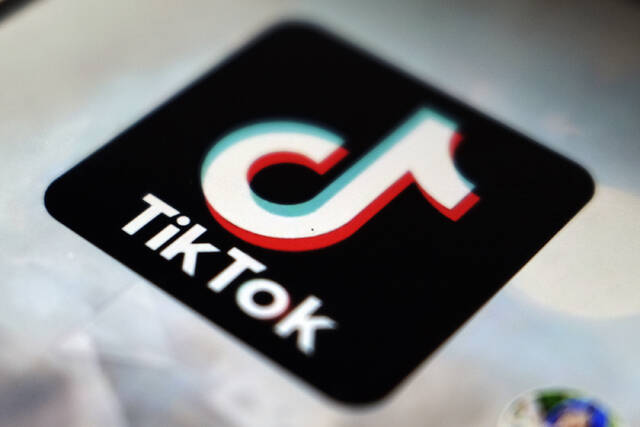The clock is ticking on the fate of the wildly popular TikTok social media app after the U.S. Senate voted this week in favor of legislation that could potentially result in its ban in the United States, and a local lawmaker and an IT expert have differing opinions on concerns about the app.
President Joe Biden signed a bill into law Wednesday that forces ByteDance to sell the social media platform within a nine-month time period or face a ban.
TikTok is owned by Beijing-based tech firm ByteDance and used by more than 148 million people in the U.S.
The app shares videos and debuted in 2017. It saw nearly $30 billion in U.S. revenue during the second quarter last year, according to data from Statista.com.
The TikTok legislation was included in a $95 billion dollar package that provides foreign aid to Israel and Ukraine and passed 79-18.
Lawmakers from both parties have expressed concerns over Chinese security laws that contribute to intelligence gathering.
Rep. Chris Deluzio, D-Aspinwall, said Wednesday that the Chinese Communist Party needs to be eliminated from any involvement with TikTok.
“It’s both a national security and cyber-security imperative to get the CCP out of American phones, out of our data and out of TikTok. This app can and should continue, but only under non-adversary ownership and in a way that protects the privacy and civil liberties of Americans,” Deluzio said. “I’m glad to see the revised version of the legislation extends the timeline to a more feasible length and will also bar the company from controlling TikTok’s algorithm.”
The extension passed in the bill extended the sale timeline from six months to nine months.
Deluzio described the CCP’s involvement with TikTok as unacceptable.
“In its current form, the Chinese Communist Party has unacceptable influence and control over ByteDance, the company that owns TikTok. A lot of Americans and parents and the majority of Congress believe that CCP should not be able to conduct mass surveillance on the American people, tell our kids what to watch online or push propaganda through social media platforms,” Deluzio said.
Upcoming Local Events
TikTok has denied sharing American user data with the Chinese government. Ari Lightman, a Carnegie Mellon University professor of digital media and marketing, described the ban bill as political.
“It’s an election year,” said Lightman, adding he believes there’s no threat to U.S. security in regards to TikTok usage. “I don’t want to seem flippant about it, but it’s political posturing. We need to look like we’re strong to the Chinese government.”
Lightman said his students have discussed a TikTok ban for several years. He weighed in on whether or not he feels the app poses a legitimate U.S. security concern.
“No. The possibility is always there, but there’s no evidence,” Lightman said.
His students use social media platforms such as TikTok, Facebook, Instagram and more in class.
TikTok posted to X, formerly Twitter, on Wednesday expressing opposition to the bill, labeling it unconstitutional and vowing to challenge the bill in court.
“The fact is, we have invested billions of dollars to keep U.S. data safe and our platform is free from outside influence and manipulation. This ban would devastate seven million businesses and silence 170 million Americans,” the statement read in part.
China previously opposed a forced sale of TikTok — it was banned in India in 2020 — and denies the app is a security threat and is preparing a lawsuit to block the legislation.
If a TikTok ban goes into effect, experts noted the app will not be deleted from your phone but will be unavailable for downloads on Apple and Google app stores.
“The app wouldn’t go away, but it wouldn’t refresh … and it would make the app non-relevant,” Lightman said.
“The U.S. stance toward China is hostile for a variety of reasons, and TikTok has been thrown into the mix with the culture war,” Lightman said. “It bears some credence to understand that in six or seven months we’ll have the same or new government and it might be very different towards social media and relations towards China.”
Lightman said the TikTok ban has mixed reactions among his students, some of whom are from India where it is already banned.
“It doesn’t matter as much to those students because they are highly invested in Instagram,” Lightman said.
Featured Local Businesses
He’s taking a wait and see approach.
“It’s not over till it’s over,” he said.
Joyce Hanz is a native of Charleston, S.C. and is a features reporter covering the Pittsburgh region. She majored in media arts and graduated from the University of South Carolina. She can be reached at jhanz@triblive.com

